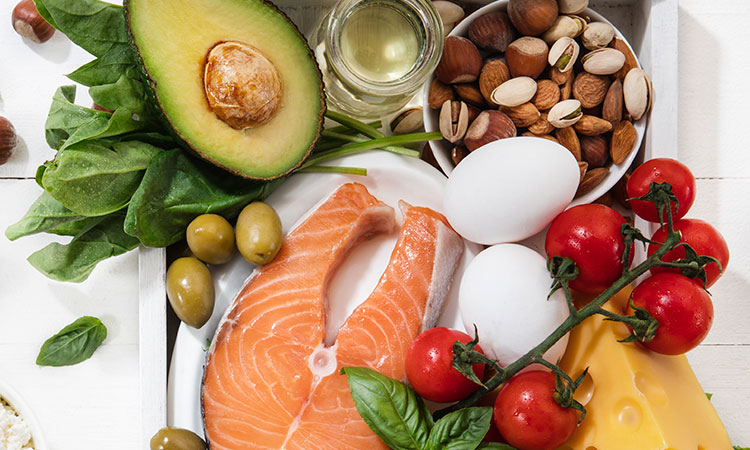The ketogenic diet (keto or Keto) is a low-carb, high-fat diet that shares many similarities with the Atkins and low-carb diets.
It is about drastically reducing the intake of carbohydrates and replacing them with fats. This reduction in carbohydrates puts your body in a metabolic state called ketosis.
During ketosis, your body burns fat for energy instead of glucose.
The idea behind the ketogenic diet is to get more calories from protein and fat and fewer from carbohydrates.
Benefits of the Keto Diet
Studies have found that the keto diet can help with weight loss, visceral adiposity, and appetite control. It can also improve blood sugar regulation, reduce inflammation, and improve cholesterol levels.
Additionally, the Keto diet can protect brain function and potentially reduce seizures. It has also been found to improve heart health and potentially reduce symptoms of PCOS.
However, it is important to note that this diet should only be implemented for a short period of time followed by the adoption of healthier eating habits to achieve long-term health benefits.
Negative Effects of the Keto Diet
The most common side effect of the keto diet is known as the “keto flu,” which can cause fatigue, headaches, nausea, and trouble sleeping.
Additionally, the ketogenic diet can lead to digestive problems such as diarrhea and changes in gut bacteria.
The ketogenic diet can also increase the risk of kidney stones due to its high fat content, and can cause nutrient deficiencies if not properly managed.
Additionally, people following a ketogenic diet may be at increased risk of microvasculature, brain, kidney, and liver complications compared to people not following the diet.
Finally, following a strict ketogenic diet can reduce athletic performance due to decreased glycogen stores in the muscles.
eating plan
Some allowed foods on the keto diet are eggs, meat, fish, vegetables, fruits, nuts, and seeds. The foods that should be avoided are sugars, cereals and derivatives (including whole grains), legumes, sugary soft drinks, sweets, grains and legumes. Nor can you consume foods rich in carbohydrates such as bread, pasta and rice.
Remember that to follow any eating plan it is necessary to consult a doctor and take into account your general health conditions.
Diets must be accompanied by exercise routines to lose weight.
Some experts consider that it is also necessary to work with the emotional origin of being overweight.
This note was written with the help of artificial intelligence from Perplexity ai
Photo: master1305 en Freepik
It may interest you:Do emotional problems influence being overweight?Yes, emotional problems can lead to being overweight. Studies have shown that obesity is associated with emotions such as distress, anger, disgust, fear, and shame. |
|
Read more |
Comments
